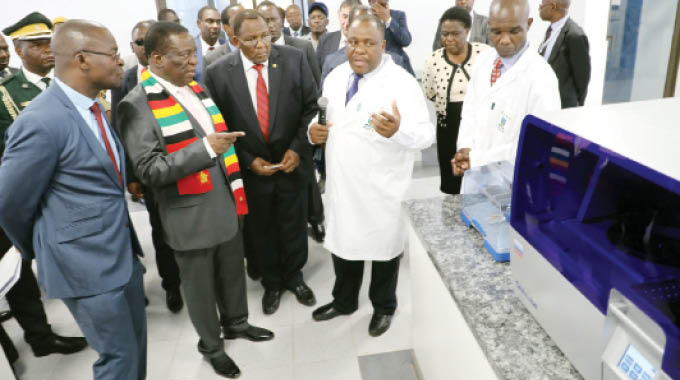Nust to do DNA profiles for civil servants…. to get rid of ghost workers

By Robin Muchetu
The National University of Science and Technology Applied Genetic Testing Centre in Bulawayo is discussing with the Government to create DNA profiles for all civil servants as part of the biometric registration meant to rid the system of ghost workers.

In an interview on Friday, the centre’s director, Mr Zephania Dlamini, said Finance and Economic Development Minister Professor Mthuli Ncube approached the university to create a database of civil servants that will also include their DNA profiles.
“He (Prof Ncube) said he was still interested when we saw him, so we are designing a system for the public service, that will be our starting point. What will happen is that we will create a database of workers and in this database you enter the details and DNA profile of the worker.
“When the profile of the worker is there then this is what will be used to pay the worker. A person who has no DNA profile will not be able to be on the payroll by any means,” he said.
Mr Dlamini said the system they were designing for the workers was foolproof.
“We cannot create an artificial DNA profile, so we will capture all civil servants and ensure the correct number of people are paid, not to have ghost workers at this day,” he said.
The private sector, he said, can now get rid of ghost workers by adopting the same strategy that will enable them to pay salaries to the correct number of workers and eliminating all ghost workers.
Presenting the 2019 National budget late last year, Finance and Economic Development Minister Prof Ncube said previous civil service audits undertaken by Government pointed to the possible existence of ghost workers, contributing to the increasing public service wage bill which accounts for over 90 percent of total revenues.
This prompted Prof Ncube to introduce biometric registration for civil servants.
He said the biometric data will involve capturing of one’s unique physical attributes such as fingerprints, DNA, iris and retina pattern, using ICT.
The Public Service Commissioners (PSC) took the lead in September 2019 to register in the biometric system which closed on 1 October 2019.
According to Government those who did not register would be locked out of the system and not get their salaries. Mr Dlamini also said their DNA profiling for workers would also deal with nepotism.
“You can use the database to also check for people who are related in the same work space. This is being done by some companies as there is nepotism going on at some workplaces so some employers will choose to have DNA profiling done on their workers so as to see who is related to who,” he said.
He gave an example of a firm where the people shared different surnames but were all closely related working under one roof.
In terms of people who vanished at war, he said the centre can assist those with missing relatives despite the time that will have passed following the discovery of any remains.
“What should happen is to create a database of missing persons say in a particular area, there are people who disappeared, you take the DNA of the surviving relatives and keep them.
“When a skeleton is then discovered we take that same DNA profile and check it against the people in that area to see who they are related to,” he added.
Mr Dlamini went on: “Just like the Chimanimani cyclone disaster, we created a database of the relatives of missing persons and when they find remains then we test them and see the clan where this person belonged to.”
He said the Government was still to give the institution the go ahead to carry DNA tests for the remains that were found in the affected areas.
On Friday last week, President Mnangagwa commissioned the Nust Innovation Hub where young people in universities can carry out their innovations that will have an impact globally. The hub is set to play a significant role in coming up with innovations that help the country. Sunday News





